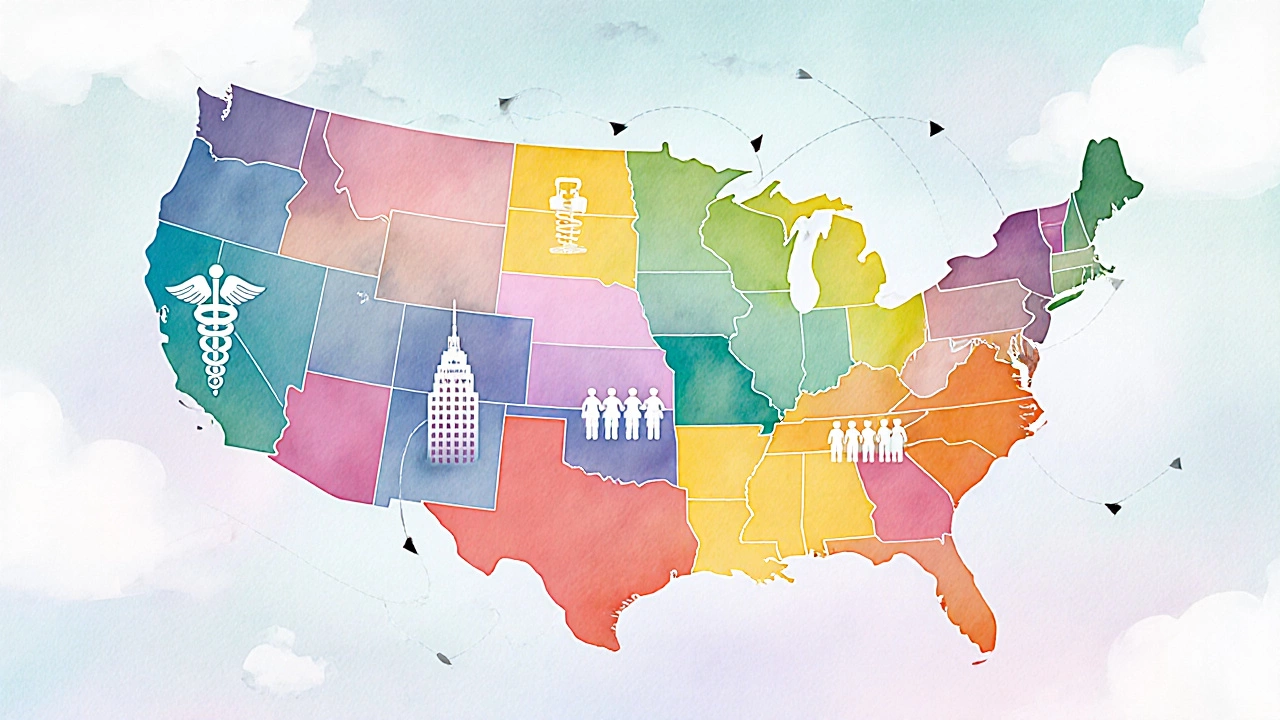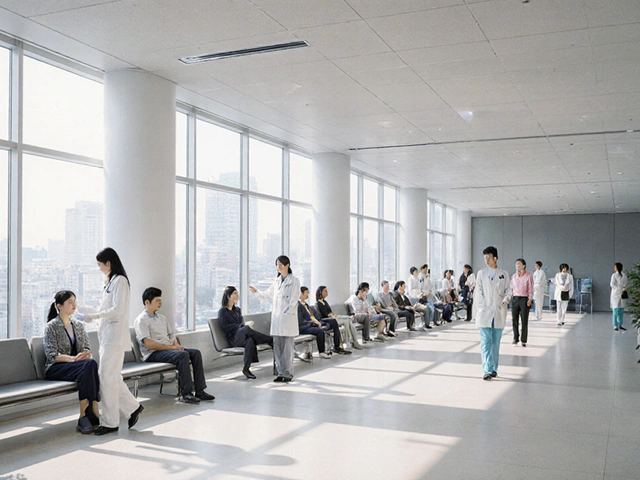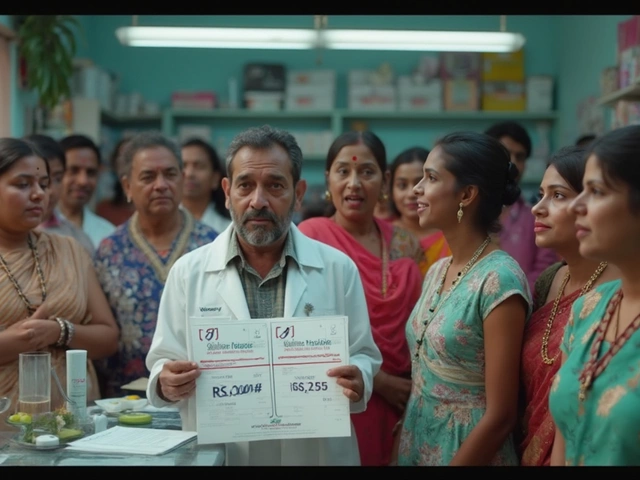- Home
- Medical Tourism
- Which US State Has the Best Doctors for Medical Tourism?

Which US State Has the Best Doctors for Medical Tourism?
Imagine stepping off a plane in a new state, checking into a hospital that feels like a five‑star hotel, and leaving with a treatment plan that beats what you could get at home. That’s the promise of medical tourism in the United States, but not every state delivers the same level of expertise, safety, and value. Below we break down the factors that make a state a magnet for high‑quality doctors and rank the top contenders.
Medical tourism is the practice of traveling across borders-or, in this case, state lines-to receive medical care that is either more affordable, faster, or of higher quality than at the patient’s home location. It has grown into a multibillion‑dollar industry, especially for elective procedures, cancer treatment, and complex surgeries.How We Evaluate Doctor Quality by State
We start with data that actually matters to a patient considering travel:
- Doctor density: Number of board‑certified physicians per 1,000 residents. A higher density typically means more specialists and shorter wait times.
- Hospital accreditation: Presence of Joint Commission International (JCI) accredited facilities, which indicates adherence to global safety standards.
- Patient outcomes: Mortality and complication rates for high‑risk procedures such as cardiac bypass, joint replacement, and oncology surgeries.
- Cost index: Average price of common procedures relative to the national average, adjusted for insurance coverage and travel expenses.
- Medical tourism infrastructure: Availability of concierge services, language support, and streamlined visa processes.
Each factor is weighted according to its impact on a traveler’s experience. The resulting score places the states on a 0‑100 scale.
Top 5 US States for the best doctors
| State | Doctor Density (per 1k) | JCI‑Accredited Hospitals | Patient Outcome Score | Cost Index (vs. US avg.) | Tourism Support Rating |
|---|---|---|---|---|---|
| Massachusetts | 3.2 | 5 | 92 | 115% | 9 |
| California | 2.9 | 7 | 88 | 110% | 8 |
| Texas | 2.7 | 6 | 85 | 95% | 8 |
| New York | 2.8 | 4 | 84 | 108% | 7 |
| Florida | 2.5 | 5 | 80 | 90% | 9 |
Massachusetts leads the pack thanks to its concentration of world‑renowned academic hospitals like Massachusetts General and Brigham and Women’s. California follows with a sheer volume of specialists and a robust biotech ecosystem. Texas offers a compelling mix of expertise and lower costs, while New York’s reputation for cutting‑edge research keeps it in the top tier. Florida’s warm climate and strong concierge network make it a favorite for elective procedures such as orthopedics and cosmetic surgery.
Deep Dive: Why Massachusetts Stands Out
United States has the largest pool of board‑certified physicians worldwide, supported by a network of research institutions and teaching hospitals that attract talent from every continent. In Massachusetts, the doctor‑to‑patient ratio sits at 3.2 per 1,000, the highest among all states. This density translates into shorter wait times for specialist appointments-often under two weeks for cardiac surgery, compared with a national average of six weeks.
The state also hosts seven JCI‑accredited hospitals, a benchmark that assures international patients of adherence to safety protocols such as surgical checklists, infection control, and continuous quality improvement. Patient outcome scores for complex procedures sit in the low 90s, meaning mortality rates are roughly half the national average.
Cost remains a hurdle; Massachusetts procedures cost about 15% above the national average. However, many medical tourism companies negotiate bundled packages that include travel, lodging, and post‑operative care, narrowing the price gap.
Practical Tips for Choosing a State
- Define your procedure. Some states specialize: California excels in cardiovascular innovation, Texas in transplant surgery, and Florida in aesthetic medicine.
- Check accreditation. Look for JCI or Accreditation Canada International stamps. These guarantee international safety standards.
- Ask about follow‑up care. The best states have an integrated network that allows remote monitoring and easy access to local specialists once you return home.
- Factor in travel logistics. States with major international airports (e.g., New York, California, Texas) reduce travel fatigue and often have dedicated medical tourism desks.
- Budget wisely. Compare bundled offers that include visa assistance, accommodation, and interpreter services. A lower headline price can hide hidden costs.
By aligning your medical needs with a state’s strengths, you can maximize both clinical outcomes and overall experience.

Common Misconceptions About US Medical Tourism
- “All US hospitals are equally expensive.” - Costs vary widely. Medicaid‑eligible services in Texas can be 20‑30% cheaper than comparable care in Massachusetts.
- “Only large cities have good doctors.” - Many top specialists practice in suburban academic centers that offer quieter environments and lower hotel rates.
- “Insurance won’t cover anything abroad.” - Some US insurers reimburse for out‑of‑state care if the provider is in-network, especially for planned surgeries.
How to Verify a Doctor’s Credentials
When you find a physician, use the following checklist:
- Confirm board certification via the American Board of Medical Specialties (ABMS) website.
- Check malpractice history through state medical board databases.
- Review publications and clinical trial involvement on PubMed or Google Scholar.
- Ask for patient testimonials, especially from international clients.
- Verify that the hospital is JCI‑accredited and that the surgeon’s privileges are current.
These steps cut down the risk of choosing an under‑qualified practitioner and give you confidence before you book your flight.
Next Steps After Picking a State
Once you’ve settled on a state, the journey looks like this:
- Consult a reputable medical tourism facilitator. They can match you with vetted doctors and negotiate package rates.
- Secure travel documents. Most medical visas are short‑term B‑2 entries, but some states streamline the process for patients with a letter from the treating hospital.
- Arrange accommodation. Many JCI hospitals have on‑site lodging or partner with nearby hotels that offer “hospital‑only” rates.
- Plan post‑procedure care. Identify a local clinic for wound checks and a telehealth service for remote follow‑up.
Following this roadmap reduces surprise expenses and keeps your recovery on track.
Which US state offers the most affordable cardiac surgery for foreign patients?
Texas generally provides the lowest cost for cardiac procedures among the top states, with prices about 15% below the national average while maintaining high outcome scores.
Do I need a special visa for medical tourism in the US?
Most patients use a B‑2 tourist visa, which requires a letter from the hospital confirming the planned treatment. Some states offer expedited processing for documented medical cases.
How can I verify a doctor’s board certification?
Visit the American Board of Medical Specialties (ABMS) online directory, enter the physician’s name, and confirm active certification in the relevant specialty.
Are follow‑up appointments covered if I return to my home country?
Many US hospitals partner with international clinics for remote monitoring. Check the care package; some include telehealth follow‑up at no extra charge.
What language support is usually available for non‑English speakers?
Leading medical tourism hubs like California and Florida provide professional interpreters in Spanish, Mandarin, Arabic, and more. Ask the facilitator to arrange this before arrival.

Arnav Singh
I am a health expert with a focus on medicine-related topics in India. My work involves researching and writing articles that aim to inform and educate readers about health and wellness practices. I enjoy exploring the intersections of traditional and modern medicine and how they impact healthcare in the Indian context. Writing for various health magazines and platforms allows me to share my insights with a wider audience.
About
Medical Resource Center India is a comprehensive online platform dedicated to providing reliable health information and medical resources in India. Explore a wide range of articles, tips, and advice on medicine, healthcare services, and wellness. Stay informed about the latest developments in Indian medicine and access valuable insights into maintaining a healthy lifestyle. Discover expert guidance and health solutions tailored for every Indian citizen. Your go-to destination for authoritative medical knowledge in India.








